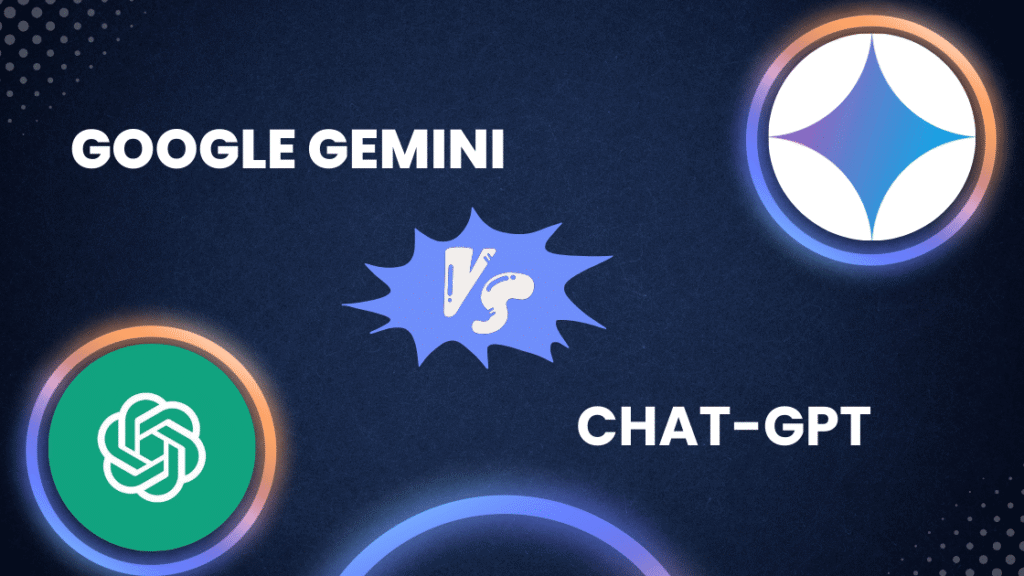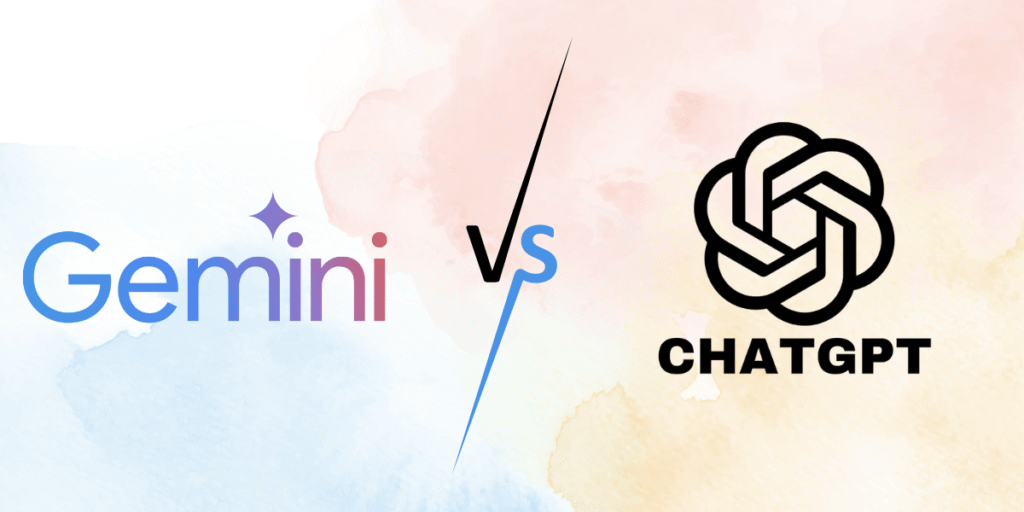Introduction

Remember when choosing an AI felt like picking a favorite sci-fi movie? A fun, futuristic thought experiment? Well, fast forward to 2025, and it’s a decision that impacts how we work, create, and learn every single day. The two titans dominating the landscape—ChatGPT vs Gemini—have evolved at a breathtaking pace.
If you’re standing at the crossroads, wondering which digital brain to invite into your workflow, you’re not alone. Is it the refined, creative powerhouse of ChatGPT, or the deeply integrated, hyper-efficient Gemini? This isn’t a story of good vs. evil; it’s a clash of philosophies, strengths, and ecosystems.
We’ve spent months testing, prodding, and living with both models in 2025. This isn’t just a spec sheet comparison. This is a deep dive into which AI truly feels better for you. Let’s settle the score.
A Quick Refresher: The Contenders Enter the Ring
Before the bell rings, let’s meet our contenders.
ChatGPT (by OpenAI): The people’s champion. Born from the groundbreaking GPT architecture, ChatGPT exploded into the public consciousness and fundamentally changed how we interact with machines. It’s the veteran, having evolved through GPT-3.5, the powerful GPT-4, the nimble GPT-4o (“o” for “omni”), and now, even more advanced iterations. It’s known for its eloquence, creativity, and a massive, dedicated community of users and developers.
Gemini (by Google): The ambitious challenger. Born from the merger of Google’s DeepMind and Brain teams, Gemini was built from the ground up with one key principle: native multimodality. Unlike models that bolt on capabilities, Gemini was designed to think simultaneously in text, images, audio, and code from its very core. It’s the heir to the Google empire, with all the data and integration that implies.
The 2025 Battlefield ChatGPT vs Gemini: A Category-by-Category Breakdown

So, how do they stack up where it matters? We’ve broken down the fight into the key rounds that matter most to users like you.
Round 1: Core Technology & Architecture
- ChatGPT: Its engine is based on the Generative Pre-trained Transformer (GPT) lineage. Think of it as a master of language that has learned to see, hear, and reason as additional skills. Its strength lies in its deep, nuanced understanding of context and intent within language. The latest models are incredibly fast and capable, handling complex tasks with a familiar fluency.
- Gemini: Google’s ace in the hole is its architecture. Gemini was conceived as a “multimodal native” from day one. This means it doesn’t just have a text module and a separate image module; its very brain is wired to process these different types of information together. The star of the show in 2025 is its massive context window—think of it as a working memory that can hold over 1 million tokens. This means you can upload entire research papers, lengthy codebases, or hours of video and ask questions about the entire thing at once.
The Takeaway: Gemini’s architecture feels more futuristic and is built for a multimodal world. ChatGPT’s language-first approach remains incredibly refined and effective. If you need to process enormous documents, Gemini has a structural advantage.
Round 2: Performance & Brainpower
Let’s talk raw intelligence. Benchmarks (like MMLU for general knowledge, GSM8K for math, and HumanEval for coding) tell part of the story. In 2025, the gap is razor-thin.
- STEM & Logical Reasoning: Gemini often holds a slight, but consistent, edge in mathematical problem-solving, physics, and complex logical reasoning. Its connection to Google’s search data and its native design seem to give it a boost in factual and scientific accuracy.
- Creative Writing & Nuance: ChatGPT still often wins the hearts of writers, marketers, and creators. Its prose tends to be more fluid, imaginative, and stylistically varied. It’s better at mimicking specific tones of voice and crafting narratives that feel genuinely human.
- Coding: This is a tie that leans slightly based on the task. Both are exceptional programmers. ChatGPT has a vast ecosystem of community-shared prompts and a head start that many developers still love. Gemini, however, often demonstrates a remarkable ability to understand and manipulate large, existing codebases thanks to its massive context window.
Round 3: Multimodal Capabilities (The Senses War)
This is where the philosophical differences become practical.
- Image Understanding & Generation:
- ChatGPT uses its integration with DALL-E to generate stunning, creative images. Its vision capabilities are also top-tier, allowing you to upload a photo and ask detailed questions about it.
- Gemini uses Google’s Imagen 3 model, which produces incredibly photorealistic and coherent images. But its real strength is in analysis. Because it’s natively multimodal, describing a complex chart or diagram to Gemini feels more seamless. It doesn’t feel like it’s “switching” between a text brain and a vision brain; it uses both at once.
- Audio & Voice Features:
- Both models have advanced, conversational voice modes that make talking to an AI feel natural, like something from the movie Her. The robotic pauses of 2023 are long gone.
- ChatGPT’s voice mode is known for its expressiveness and emotional range.
- Gemini’s voice feels deeply integrated into the Android ecosystem, allowing for quick, real-time translations and interactions on the go.
Round 4: User Experience & Daily Driving
How does it feel to use them?
- ChatGPT’s Interface: Clean, intuitive, and familiar. The introduction of “Memory” allows it to remember your preferences across conversations, making interactions feel personalized. The ability to create and share “Custom GPTs” for specific tasks (like a blog post optimizer or a travel planner) is a killer feature for power users.
- Gemini’s Interface: It feels less like a standalone app and more like a layer over the entire Google ecosystem. The ability to start a query in Gemini and seamlessly pull in data from your Gmail, Google Docs, or Google Drive is a productivity game-changer that ChatGPT can’t easily replicate.
Round 5: Pricing & Accessibility
In 2025, both companies have settled on a similar freemium model.
- ChatGPT: A robust free tier exists, but to access the most powerful model (beyond GPT-4o), advanced features, and the GPT store, you need the ChatGPT Plus subscription. For teams and enterprises, there are higher-tier plans with more usage and administrative controls.
- Gemini: Similarly, there’s a very capable free tier. Access to the top-tier “Ultra” model and advanced features like the massive context window comes with the Google One AI Premium plan. The huge value-add here is that this subscription often bundles other Google services, like expanded cloud storage.
Value Verdict: If you’re already paying for Google One storage, upgrading to Gemini Advanced is a no-brainer. If you live in the Custom GPT ecosystem, ChatGPT Plus is your ticket.
Round 6: Integration & Ecosystem (The Lock-In Factor)
This is arguably the most decisive factor for many users.
- ChatGPT’s World: Its strength is its vast third-party ecosystem through its API and plugin store. It’s the backbone of Microsoft’s Copilot, meaning it’s woven into Windows, Office, and Edge. If you’re a developer building an AI-powered app, ChatGPT’s API is often the default choice.
- Gemini’s World: Its strength is the sheer, unstoppable force of the Google universe. It is Search. It is Gmail. It is Docs, Sheets, and your Android phone. Asking Gemini to “find the flight confirmation email from John, summarize the itinerary, and add the dates to my Google Calendar” isn’t a futuristic demo; it’s a daily command. This deep, native integration is its superpower.
The Moment of Truth: Which AI Is Better For YOU?

The answer, as you’ve probably guessed, is “it depends.” But let’s make it crystal clear.
You Should Choose ChatGPT if…
- You’re a Creator or Writer: Your priority is eloquent, creative, and stylistically diverse text. ChatGPT is still the wordsmith’s best friend.
- You’re a Developer Tinkering with the API: The developer community, documentation, and sheer number of tools built around OpenAI’s API are massive.
- You Love Customization: The ability to build and use specialized Custom GPTs for thousands of specific tasks is an unparalleled advantage.
- You Live in the Microsoft Universe: If your workflow revolves around Teams, Word, and Outlook with Copilot, ChatGPT’s technology is already at your fingertips.
You Should Choose Gemini if…
- You’re a Student or Researcher: The massive context window is a game-changer. You can upload multiple textbooks and research papers and have Gemini synthesize them for you. Its native integration with Google Search also makes it a research beast.
- Your Life Runs on Google Workspace: If you live in Gmail, Google Docs, and Sheets, choosing Gemini is like adding a supercharged co-pilot to your entire digital life. The productivity boost is immediate and profound.
- You Need Top-Tier STEM and Factual Accuracy: For coding, math, and scientific queries, Gemini’s slight edge in logical reasoning and its access to Google’s vast knowledge graph make it incredibly reliable.
- You’re an Android Power User: The seamless integration on mobile for quick voice queries, translations, and summaries feels like the future.
The Final Verdict
After months of testing, our conclusion is this: There is no single “best” AI, but there is a “best for you.”
- ChatGPT remains the king of creativity and community. It feels like a brilliant, versatile partner you can talk to about anything, and its ecosystem of custom bots is unmatched. It won the race to make AI popular and continues to refine that vision beautifully.
- Gemini has taken the crown for integration and information synthesis. It feels less like a partner and more like an extension of your own mind, especially if you’re embedded in Google’s world. Its ability to process vast amounts of information and connect it to your personal data is, frankly, breathtaking.
The competition between these two giants is the best thing that could have happened to us, the users. It forces relentless innovation, better pricing, and more powerful features. The real winner of the ChatGPT vs. Gemini showdown in 2025 is you.
Now, we’d love to hear from you. Which one has become your digital companion of choice?
Frequently Asked Questions (FAQ)
Is Gemini more accurate than ChatGPT?
In 2025, both are highly accurate. However, Gemini often has a slight edge in factual, STEM, and real-world knowledge due to its direct lineage from Google Search. ChatGPT can sometimes prioritize creativity over pure factuality, though its “Browse” feature helps mitigate this.
Can I use both ChatGPT and Gemini for free?
Absolutely. Both offer powerful and completely free tiers. However, to experience the true top-tier capabilities—like Gemini Ultra or the most advanced GPT models—you will need to subscribe to their premium plans. The free tiers are perfect for getting a genuine feel for each model’s style.
Which AI is better for coding?
Both are exceptional, to the point where this is largely a matter of preference. Many developers still gravitate towards ChatGPT due to habit and its vast community. However, Gemini’s massive context window is a huge advantage for working with and refactoring large, existing codebases. We recommend trying both for your specific coding style.
Does Gemini have a voice feature like ChatGPT?
Yes, and it’s excellent. Both have advanced, real-time, conversational voice modes that make interacting via speech feel natural. Gemini’s is deeply integrated into Android, while ChatGPT’s is known for its expressive and emotive tones. It’s another category that’s too close to call.



